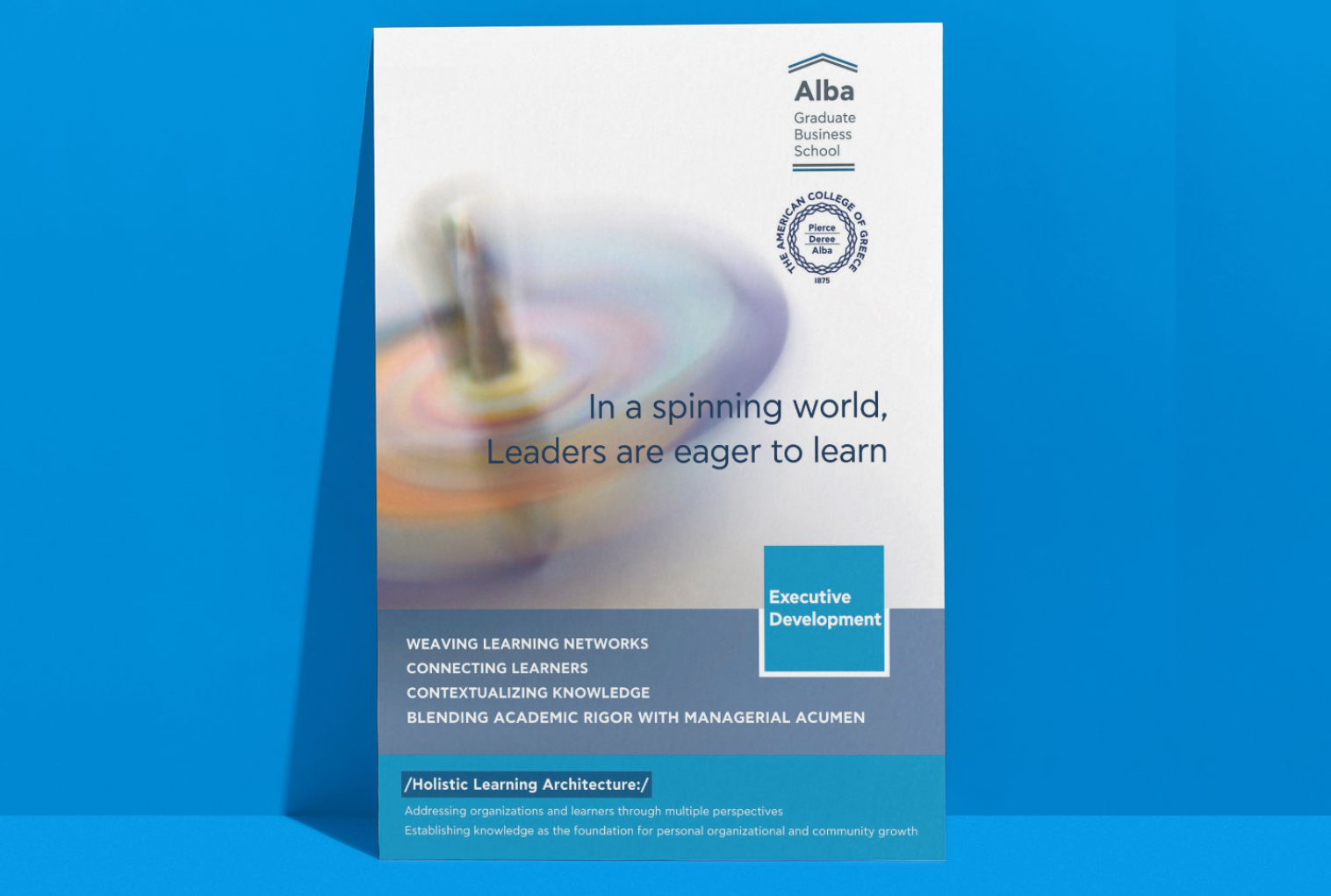
The growing challenge of disinformation in the digital era took center stage at the second event of the Theodore Papalexopoulos Sustainability Dialogues Series, hosted at Alba Graduate Business School, The American College of Greece, on Friday, October 3, 2025. The event featured an insightful keynote by Professor Patrick Haack, Professor of Strategy and Responsible Management, and Head of the Department of Strategy, Globalization and Society at HEC Lausanne, University of Lausanne.

In his keynote address, titled “How to Counter Fake News,” Professor Haack, also an International Research Fellow at the Centre for Corporate Reputation at the University of Oxford, explored scientifically grounded approaches and practical strategies to combat disinformation. Drawing on his recently published article in the Harvard Business Review, he emphasized that tackling fake news requires more than simply debunking falsehoods, it demands understanding the psychological and social mechanisms that sustain them.

The discussion highlighted the far-reaching implications of fake news for businesses, the erosion of corporate reputation, the decline of public trust, and the distortion of stakeholder perceptions. Professor Haack noted that traditional crisis management responses, such as ignoring or denying disinformation, are often ineffective. Instead, he advocated for a deeper understanding of social proof, how people’s beliefs are shaped by what they perceive others believe, and the significance of second-order judgments, or how audiences think others view an organization.
Among the key strategies presented were, continuous monitoring of an organization’s social reputation and narrative influence, proactive transparency measures and “prebunking” efforts to prevent disinformation before it spreads, engaging credible allies, such as scientists, partners, and customers, to act as authentic voices reinforcing the truth.
As Professor Haack emphasized, “In today’s age of information overload, truth alone is not enough, social validation of truth is equally critical.”
A lively panel discussion followed, featuring Rineta Mitsi, General Secretary of the Corporate Affairs Professional Association (CAPA) and Sustainability Director at Goody’s-Everest Group, and Fernando Kalligas, Senior Director of Corporate Affairs, ESG & Communications at DESFA, Greece’s natural gas network and LNG terminal operator. The session provided practical insights into how organizations can build resilience against disinformation and safeguard their reputational integrity.
The event was attended by distinguished guests, including Edward C. Wingenbach, Ph.D., President of The American College of Greece, Lena Papalexopoulou, Vice-President of Desmos Non-Profit Foundation, members of SEV – Hellenic Federation of Enterprises, and leading figures from the Greek business community, such as Aristotelis Panteliadis, Efthymios Vidalis, and Lydia Giannakopoulou.

Reflecting on the event’s success, Professor Pavlos Vlachos, Professor of Marketing at Alba Graduate Business School and holder of the Theodore Papalexopoulos Chair in Sustainability, noted:
“In a world where 72% of people across 25 countries identify fake news as the greatest global threat, surpassing even climate change, our responsibility as educators, business leaders, and citizens is clear: we must not only learn to detect disinformation but also to counter it effectively. Through the Theodore Papalexopoulos Sustainability Dialogues, we bring together top academics and practitioners to advance this mission.”
He added:
“We are grateful to Professor Haack for sharing his insights and findings from his Harvard Business Review article, reminding us of the timeless truth behind the Delphic maxim: ‘When you listen, keep your eyes open.’”
The Theodore Papalexopoulos Sustainability Dialogues aim to bridge the gap between management theory and sustainable business practice, fostering collaboration between global scholars and business leaders to address critical issues of sustainability and corporate transformation.

This second event further strengthened the series’ mission, to turn knowledge into action and inspire responsible leadership in an era defined by complexity, change, and disinformation.
Learn more about the Theodore Papalexopoulos Endowed Chair in Sustainability and the Theodore Papalexopoulos Sustainability Dialogues here.











